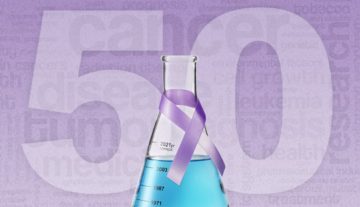Sari Harrar at AARP:
 In dozens of laboratory freezers at Columbia University in New York City, 60,000 cancer specimens await testing that oncologist Azra Raza, M.D., anticipates will find “cancer’s first cell” — the earliest mutated cell that will eventually multiply to become a cancer — and lead to treatments that knock the disease out before it grows. The blood and bone marrow samples come from nearly every one of her patients of 35 years, provided as they moved through cancer treatment.
In dozens of laboratory freezers at Columbia University in New York City, 60,000 cancer specimens await testing that oncologist Azra Raza, M.D., anticipates will find “cancer’s first cell” — the earliest mutated cell that will eventually multiply to become a cancer — and lead to treatments that knock the disease out before it grows. The blood and bone marrow samples come from nearly every one of her patients of 35 years, provided as they moved through cancer treatment.
“We have not won the war on cancer,” says Raza, a professor of medicine and director of the MDS Center at Columbia. “Understanding cancer will take 1,000 years. It is too evolved,” she says. “Instead, we have to find the first cell and eliminate it.”
Raza’s $15 million project, with input from a think tank of researchers from eight major cancer centers, aims to collect 50,000 tissue samples from another group: people who do not have cancer — yet. Intensive analysis, she says, can find tiny trouble cells, then examine how genetic changes and everyday exposures lead to cancer.
More here.
